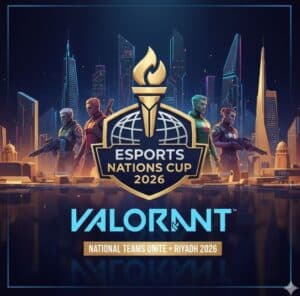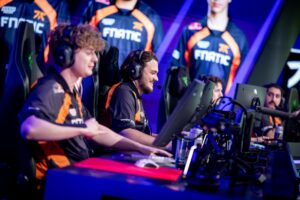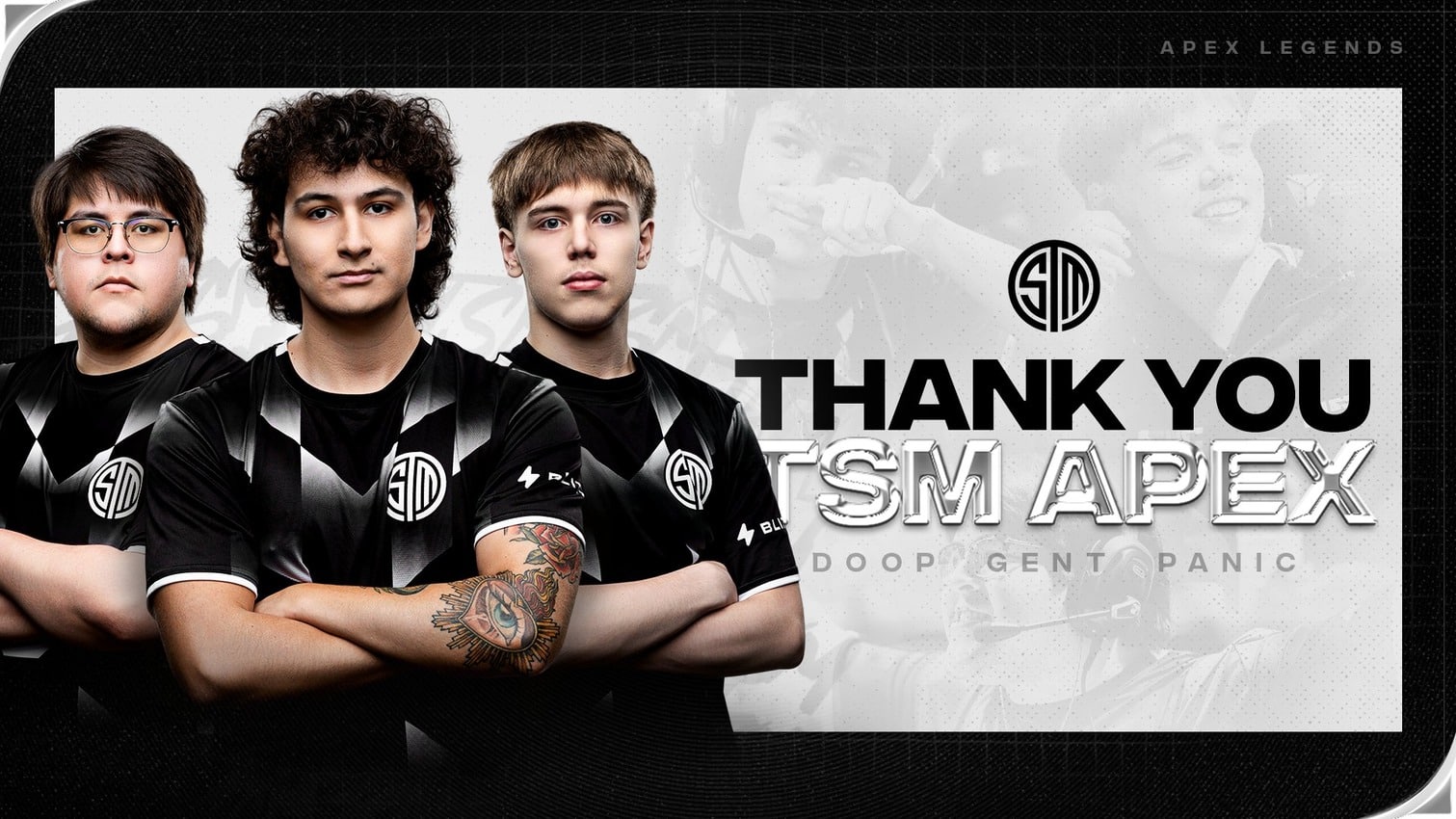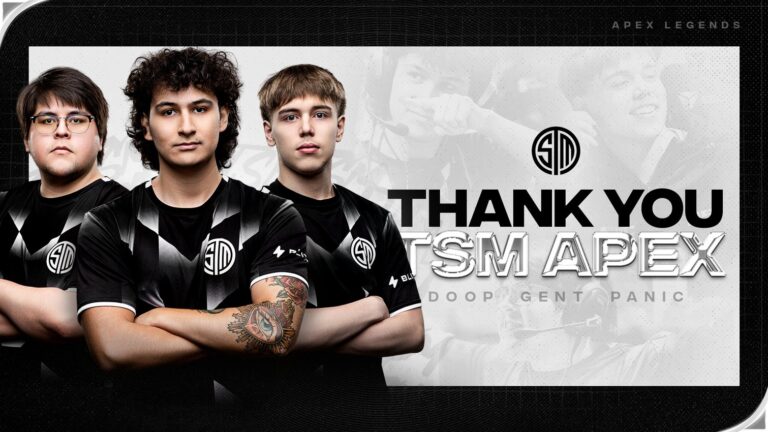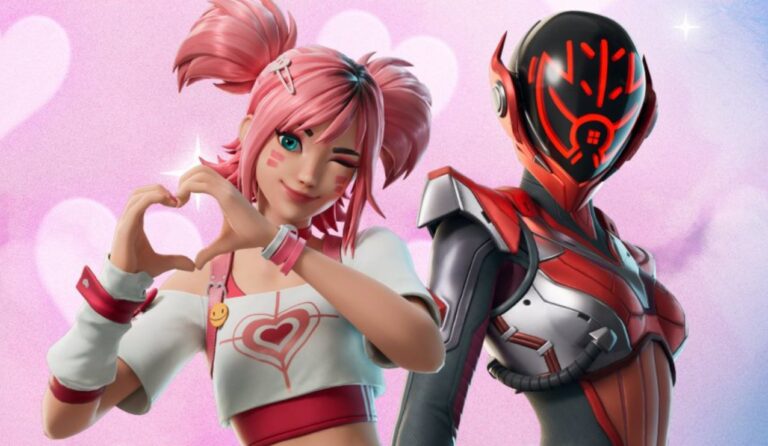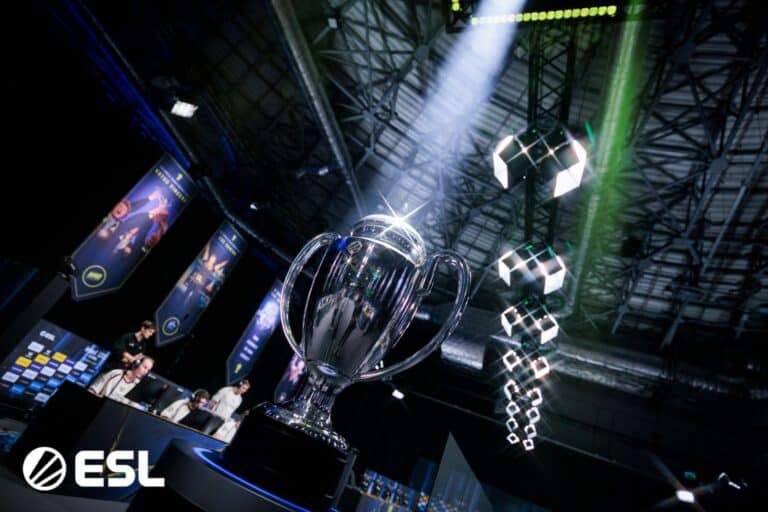Interview: Vitality’s new CS2 team manager Aphiren on falling in love with player management and how she made a career out of it, from her early days in UK esports with Excel
Dom Sacco, Senior Editor
Last Updated: 19/05/2025
What’s better than building new esports relationships and constantly travelling around with a load of gamers? It’s a rhetorical question asked by British player management specialist Amy ‘Aphiren’ May, in a 2023 interview we conducted with her about managing top esports talent at companies like ESL, Blast, Riot Games, Excel Esports and more.
This lost interview didn’t see the light of day at the time, but we’re editing it and making it live now given she’s just been announced as Team Vitality’s new CS2 team manager. It contains plenty of insight into making a career out of esports player management, an area not always covered as extensively as it could.
Hi Aphi, congrats on joining Team Vitality as CS2 team manager!
Thank you! It was about time I committed to Counter-Strike, my family for so many years – what better place to make my home, than the hive.
You previously worked at Riot Games in player development – I remember catching up with you at MSI London in 2023. What was that like?
Working at Riot was like being a kid in a candy store! Once you start at the bottom and work your way up to where you are now, it’s honestly incredible to work in that environment with people who are just so talented and so cool.
I worked in player development in EMEA for Riot, in tier 1 and tier 2 and ERLs (EMEA Regional Leagues), encompassing everything, making sure everything was cohesive and it was a whole flowing system.
I worked with a lot of freelancers and contractors who had been at Riot way longer than I had, they are incredible. It was a collaborative process using their knowledge and my knowledge, and that’s the fun part. A lot of magic comes to the table.
What did it involve?
It was about when players were on our showdays, when they’re at the events, it’s about logistics and making sure they’re comfortable and happy at events.
I explored how we brought players into the scene in a good way, how we manage their expectations, how we make sure they have a balanced lifestyle.
I was based in Berlin and had a talented pool of player handlers that we sent to events.
One thing I was invested in at Riot was player off-boarding, how do we help players transition from a professional player lifestyle out into the real world? Many people don’t think about this.
I’m passionate about making sure players are set up for life, and making sure the ecosystem doesn’t dump them to the ground. They have a lot of money, how do they manage that, are they prepared for that, how we’re helping that – I was passionate about exploring that at Riot.
We've got a new sheriff in town 🔫
— Team Vitality CS (@TeamVitalityCS) January 3, 2025
Please welcome @Aphiren to the Hive as our new CS2 Team Manager! pic.twitter.com/sWrAEry0al
Leaving pro play has been a problem in other sports, like football. And there are those comparisons there between esports and traditional sports.
Especially with the people management side of things. It’s really important to ensure everyone is looked after. People think pro players live a glamorous lifestyle, but there’s a lot of stress and anxiety. It’s not a stable job – you can be dropped just like that (clicks finger), and put on a bench. That can be detrimental to a player’s health, when all they want to do is play. So it’s about looking after them both inside and outside of the game.
Some say that player management in esports is like babysitting, in a sense. Would you agree?
I would say in a sense, yeah, it’s pretty much glorified babysitting! (smiles) But with a lot more fun and depth, you get that good vibe when you help somebody out and you’re doing this together. I think, after a long time, you stop seeing them as a player and player management, it’s more like a colleague. It’s a transaction. They want something from you, you want something from them, when you work together, everybody’s having a great time, especially at an event. It’s a magical place and you really want to enhance that for them.
Player management is obviously separate to performance coaching, but they cross over.
Absolutely. I think it’s also down to the kind of person you are, the player management style you have, and how involved you want to be. Do you want to be around events, is it a stepping stone, or are you invested in player mental welfare and happiness?
It’s not just players. You are the glue that holds the communications together, you have to work with broadcast, work with competition operations, the teams and the players. When there are issues, find compromises.
‘Follow your passion. If you love it and want it and want to build those connections, it’s phenomenal to be in an environment like this, it suits me perfectly. [When I first entered player management] I’d never been in a situation like it – and I knew I was never leaving it.’
Aphiren, Team Vitality
When you were at Riot in player development, did you work closely with team managers?
Yep. It’s really important to have a solid and well-refined relationship with that team manager, because not only do you understand more about those players – you can obviously build your own individual relationships – but these managers see the players way more than others do. They see them every single day.
So if you’re able to collaborate with team managers, you help each other out, and it makes an event so much more fun. When you’re like, ‘Hey! How you been?’ Getting to know their life and they get to know yours.
It’s about that human side of the players. Speaking of previous roles, you also used to work with the likes of ESL and Excel Esports. What was your first role in player management?
It all started at Insomnia Gaming Festival. I had only recently got into gaming, I met a guy called Ryan ‘Barnetto’ Barnett, who was the manager of Excel Esports at the time. Great guy. So great, that he was my introduction.
He said: ‘Amy, do you want to come see my team play?’
And I was like: ‘Play what?’
And he said: ‘League of Legends.’
I was like: ‘What, professionally?!’
I was blown away, I was brand new into gaming, I was thinking, this is crazy, this is incredible.
He said: ‘We’ve got a LAN happening next week, the finals of the ERL at the Birmingham NEC.’
I was like: ‘I’m there.’
I fell. In. Love. I honestly did. From there I shadowed him and went to loads of events with them. I got to know how a team worked and was part of that family dynamic. I had a phenomenal time.
And then, Will Attwood [formerly of ESL UK and currently at Riot] and Sabrina, who was from the ESL HQ office, they wrangled me and said: ‘Do you want to do player management?’
And I was like: ‘What’s that?’
They were like: ‘Just come and try it.’
I said: ‘Sure!’
I went there, and I’ve never looked back.
From then I did all the UK events for about eight months, I reached out to HQ and IEM Katowice 2019 was my first big event.
I was a freelancer from the beginning until I joined Riot. So I had my contracts given to me as and when I got an event, and I was like, ‘cool, yeah, I’m going, I’m here! Take me to Mumbai, I will follow you around the world!’
So I really went for it and it was a phenomenal experience, truly.
HAPPY BIRTHDAY TO MY RIGHT HAND MAN, PARTNER IN CRIME AND PART 2 OF THE BEST UK DUO @_Barnetto 💛 pic.twitter.com/LcWyucH2Cq
— Aphi (@Aphiren) May 23, 2018
You clearly have enthusiasm for this!
Follow your passion. If you love it and want it and want to build those connections, it was phenomenal to be in an environment that suited me perfectly. I’ve never been in a situation like it and I knew I was never leaving it.
You know, once you find your place, it’s like I’m snug, I’m here, I’m making my home!
I feel super blessed that I was able to find a super niche thing. Player management for professional gaming? It’s like, that’s not in a professional CV anywhere. I was in the right place at the right time and I rolled with it.
Before we started this interview, I noticed you had a bit of a different accent when you were on the phone to a player, you had more of a European twang.
It’s about making them comfortable. A lot of these players are essentially kids, they’re travelling around the world, English might not be their first language, and I speak really fast! In my natural element I’m speaking super fast, even my mum is like: ‘Amy, you need to calm down!’
So when I’m talking to players who do not speak English as their first language, the last thing I want to do is go off on a tangent. So I’m gonna speak slower and use words that help them. It’s not about anything else other than making them feel comfortable.
If that helps them and makes it easier to communicate, they feel better and happier, and eventually if they want help with their English, we can sit and talk and that has happened.
When I’m around another Brit, I go super British, and then I’m more European when I’m back with my Europeans, so it’s in flux, for sure!
I do it in interviews, if someone doesn’t have amazing English or if I’m throwing out jargon. When I interviewed Caps at MSI, I asked him about being in East London and if he’d watched Eastenders before, and he didn’t understand the word, so I said it slower. I’ve been asking players about their favourite things in London, so it only seems right for me to ask you as well.
(laughs) Oh my God, man, I haven’t watched that for so long. I need to go back to my parents house, my mum has that on repeat!
My favourite thing in London is a place called Ladurée in Covent Garden, they do the best hot chocolate in the world. Every time I’m in London I go there. Also, these rings (holds up hands) are from the market in Camden. Beautiful. If you want good rings, you want to go there.
There’s so much culture and diversity in London, but I’m not from London, my family is based in Birmingham at the moment. My dad was in the army so I was pinging [moving house] all over the place.
“It’s really important to ensure everyone is looked after. People think pro players live a glamorous lifestyle, but there’s a lot of stress and anxiety. It’s not a stable job – you can be dropped just like that, and put on a bench. That can be detrimental to a player’s health, when all they want to do is play. So it’s about looking after them both inside and outside of the game.”
Aphiren, Team Vitality
So you have that travelling nature, you’re kind of a free spirit.
100%. I had the opportunity to do what was the most comfortable for me, which was up sticks and move every few years, which means you meet loads of new people and you’ve got to build new relationships. What’s better than building new relationships and constantly travelling around with a load of gamers? Exactly, right.
Did you go from ESL to Riot, or did you do something else in-between?
I was in university at the time, so I was balancing that. So I’d be at CS events in-between matches and writing my assignments during some downtime in a spare booth!
Then covid hit just as I finished my degree. So I did some online stuff with ESL, I was also working with Blast and Esports Engine at the time, I was like a multi-freelancer person, with every game. I followed Counter-Strike – wherever ESL went, then I did some Dota with ESL and FIFA and other games every now and then.
As long as you have that ability to connect with people and to have that passion, yeah each game has its nuances and each type of player is different, the games are different, but the player management and aspects and fundamentals of that are still there. You want to make sure your people are having a good time, are fed and watered and happy, and getting their vitamin D in!
You’re a friend but you’re also being firm, and crossing over [into different games] is great. As a freelancer for Blast and ESL I was flying for like 250 days a year.
My longest stint was nine weeks, where I did two and a half weeks of Malaysia, flew straight to Malta and then did a six-week ESL Pro League. It really takes it out of you, but you’re around this big family of people and you all keep yourselves going. Then you sleep for 24 hours at the end of it, play video games, don’t leave your cave, it’s vibes (laughs) and then you go again!
I wouldn’t be able to do your role, I’d struggle to be away from my kids for a week, let alone months at a time!
I’m super lucky I have no commitments, no pet, no partner, no desire to stay in England, and a burning desire to meet new people and travel, and made sure my circumstances were flexible enough to fully enjoy that.
I don’t crave a stable lifestyle, I love the thrill of esports and moving. It’s incredible.
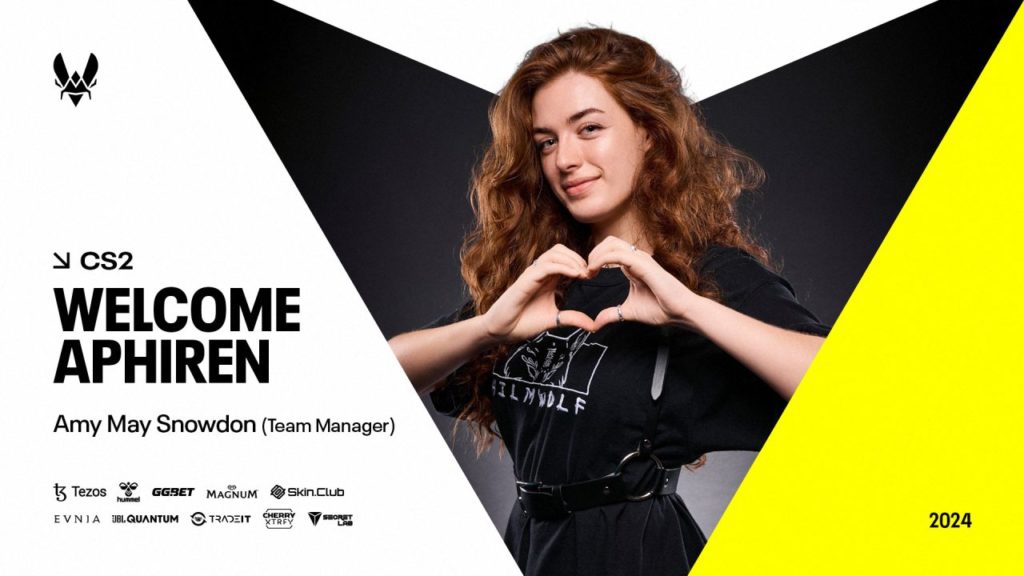
Was the Riot job the first one you applied for?
No (laughs), they also approached me.
You must be doing something right!
When you’re passionate about what you do and you’ve been in the industry a while, I was lucky, I was part of the beginning parts of that settling down and we had a really great team back in the day. I was lucky through covid that I was able to stick to it.
One of my really good partners Anton wasn’t able to stay through it and that happens. Freelancing isn’t always the most stable of career choices. I was fortunate I was able to be that staple player management figure in esports because it’s a very niche role, very specific, once you get networking and doing lots of events… you help other departments out too, even if it’s not your job, you do it anyway. You muck in and jump in and make sure everything runs properly.
We’re working 16 hours a day doing all this crazy stuff in different countries, you’re so involved.
What are your thoughts on UK esports?
I would say, whatever someone wants to do in the world of UK esports, I would advise them to find your local. Find your local community – that’s where it all begins.
It doesn’t work trying to go for the big guns all the time, because you’re trying to socialise or network all the time with people who are way far above you. It’s more effective to network with people who are on your level, because you grow together. When you grow together, you make a much more sustainable ecosystem for yourself, and you level up not only your small area, but once it gets bigger, it grows with you.
So whatever you want to get into, casting, player management, tournament management, find a local, start out, meet new people and find out if it works for you. Because you might not like it. There are so many roles in this industry you can tap into, you can become an observer, a producer, an interviewer, a camera worker, experiment, play with it and go with what the happiness does.
‘Find your local community in esports. That’s where it all begins. It doesn’t work going for the big guns all the time, socialising with people far above you. It’s more effective to network with people who are on your level, because you grow together.’
Aphiren, Team Vitality
Do you miss UK esports?
I do. I miss the gaming house days at Excel Esports, I think back to those days, we’ll all be sat there, chatting and going to events together. You’re with them with the losses and the wins, and I still keep up with Kruimel, Taxer, Send0o, my boys. I see Labrov in the LEC now, and I worked with him when he was 16, it’s insane. I love seeing it. Larssen’s on the stage too.
I’m so happy I was able to grow with them, and now you’re all here together. So I miss UK esports, but I really love the international events and all the people. I feel so special and lucky.
You work with top esports players. At Riot you got to have dinner with G2 and players like Caps, it’s a cool perk of the job!
(laughs) They’re my homies! They were my colleagues. I see them for what they are. They’re people, they’re players and are following their passions.
Thanks so much for the interview, is there anything else you’d like to add?
You’re welcome. I love shedding light on this. I just want to say you don’t have to be a caster or player to enjoy esports! There are so many incredible roles and I hope this inspires some love of that, so thank you.
Get your Vitality Pro kit 2025 and join the family too 🐝https://t.co/WUeciHTACl
— Team Vitality 🐝 (@TeamVitality) January 5, 2025
From the archives: Mezii becomes first UK CS2 player to lift an IEM trophy as Vitality win IEM Cologne 2024 finals
Top Gambling & Casino Guides
Explore some of our most popular casino, betting, and gaming guides, trusted by UK players this year.
- UK Best Online Casinos for 2026
- Top Online Betting Sites 2026
- Best Casino Sites With Fast Withdrawal
- Non Gamstop Casino Sites
- Top No KYC Casinos UK 2026
Dom Sacco, Senior Editor
Dom is an award-winning writer and finalist of the Esports Journalist of the Year 2023 award. He has almost two decades of experience in journalism, and left Esports News UK in June 2025. As a long-time gamer having first picked up the NES controller in the late '80s, he has written for a range of publications including GamesTM, Nintendo Official Magazine, industry publication MCV and others. He also previously worked as head of content for the British Esports Federation.
Stay Updated with the Latest News
Get the most important stories delivered straight to your Google News feed — timely and reliable





From breaking news and in-depth match analysis to exclusive interviews and behind-the-scenes content, we bring you the stories that shape the esports scene.
Monthly Visitors
User Satisfaction
Years experience
